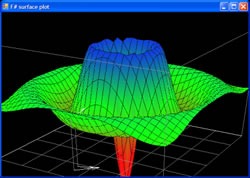Don’t have Silverlight? You can download it here or download the video in MP4, MP3, WMA, WMV, WMV (High) and Zune formats.
Here’s a Channel 9 video shot at Emerging Languages Camp 2010, the first conference on up-and-coming programming languages held in Portland on July 21 – 22. It’s a casual conversation with:
- Rich Hickey, creator of the Clojure (pronounced “closure”) programming language. It’s a dialect of Lisp intended general-purpose functional programming language with a lot of support for concurrent programming. If you caught our Ignite Your Coding webcast with Robert C. “Uncle Bob” Martin earlier this year, you heard his high praise for the language. Clojure targets both the JVM and CLR.
- Joe Pamer, compiler developer for the F# programming language. F# is a “hybrid” programming language, built with functional programming in mind, but also programmable in a more imperative object-oriented way. Much of it is compatible with the OCaml programming language, there are some C# ideas in there as well, and it’s one of the languages baked right into Visual Studio 2010.
In this conversation, Rich and Joe talk about their ideas on programming language design and evolution, functional programming, concurrency, how F# fits into Visual Studio and the granddaddy of them all, Lisp.
 F# (pronounced “eff sharp”) is multi-paradigm .NET programming language that supports both imperative object-oriented and functional programming styles. It’s a dialect of the
F# (pronounced “eff sharp”) is multi-paradigm .NET programming language that supports both imperative object-oriented and functional programming styles. It’s a dialect of the